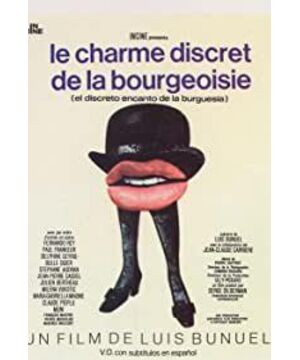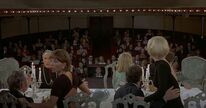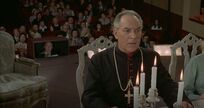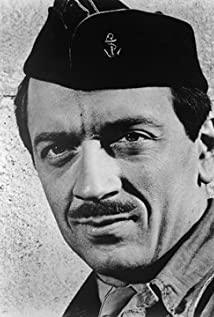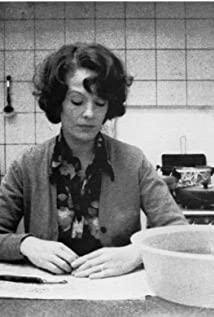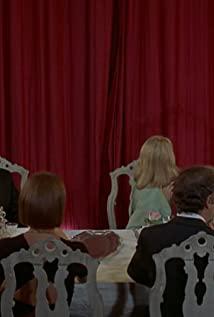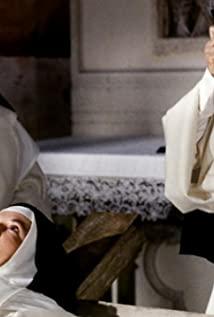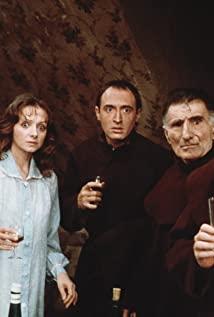When I just read the introduction, I wrote the words "never finish a meal". It wasn't until the colonel's army interrupted their dinner that it dawned on them that it was so absurd that the "bourgeoisie" couldn't have a full meal.
On the surface, the reasons for each time are complicated and absurd, but they can all be attributed to the alienation of people (alienation of self-realization, money and identity representing me; alienation between people: class exploitation):
For example, in a restaurant where the owner died in the store but insisted on operating, accidentally discovered that the worker who had shot and killed his employer because of exploitation was actually a priest who killed his own father and enemy, and the fierce battle outside made the ambassador suspect that he was a stopper who went to report his own drug trafficking. The Neshars, and so on. In my opinion, there are two points in the two most wonderfully satirical dinners. One is that everyone was invited by the colonel to their home for dinner, but found that they were sitting on the stage for the audience to watch and were speechless for a while; One is the "pure" and rambunctious sister (forgot her name for a while, allow me to call it that) serious (both eyes gleaming, shooting out the ideal color..) For Raphael's analysis, it is pointed out that her constellation is a desire to be a person When the righteous qualities of the people go to benefit the world but they are often in trouble, the camera constantly inserts the trivial conversations of the people and the profile of Raphael himself.
Even at the end, the director Luis Buñuel did not forget to show the scene of Raphael eating lamb shank in his dream before he died. Sure enough, the characteristics of gluttony have been tried and tested in many works that satirize the aristocracy and the upper bourgeoisie.
Let's talk about the filming techniques of the film, from my amateur perspective. Of course, the technique must be determined by the content, which requires a direct feeling of what Buñuel wants to grasp first. As mentioned above, it is the alienation of the bourgeoisie, the manifestation and effect of the increasingly amplified alienation among the upper bourgeoisie. The most impressive thing is that the director used the medium of dreams to intersperse the middle and back sections of the film. It is difficult for you upper-class bourgeois to sit down and have a good meal, and most of them end with absurd events, which become a dream of a certain bourgeoisie, and then a scene of you all having dinner together on a country lane, and so on, never ending. This series of absurd dreams also presupposes that this dinner will continue to be absurd: self-alienation and human-human exploitation will never end.
It is very interesting that this absurd dream is not only enjoyed by the crime-riddled upper-class bourgeoisie who will never get together, but also by members of the violent apparatus of the capitalist regime, but it is even more of a helpless penance. At the end of the film, the sheriff who arrested all of you for dinner dreamed that a certain captain used torture to interrogate prisoners for maintaining social order. After being reviled, he repented and released the arrested bourgeoisie when their souls returned at night. The sheriff woke up, but found that the captain in history was his current subordinate, and his superiors put pressure on him to release the arrested "bourgeois". The result of the dream was confirmed in reality; however, the motive for releasing their captain in the dream was a repentance for the past abuse of lynching; reason. The "repentance" of the violent organs of capitalist society and the protection of people's rights are precisely projected on the exploiters rather than the exploited, and the police are after all the "gatekeepers" of the bourgeoisie.
As for some other small transitions, I will not make a mistake here.
When Buñuel expresses the dark thoughts and plans of the upper bourgeoisie, that is, when he expresses the content of the exchange between the two, he uses a roar to cover up the content that is not on the table. This method is really interesting.
The most interesting person is the priest who went to the Senechar couple's home to be a gardener. This image has a very deep meaning. The murderer who killed his father, a manor owner, was a gardener. But as a pastor, why did he choose to go to another family to be a gardener now?
As for the defects, waiting to be added.
I have never understood what surrealism is. Recently, I repeatedly read Eagleton's review of Benjamin's chapter in "Aesthetic Ideology", and only have some shallow understanding. Since the consistency of meaning/representation is false, words cannot represent a certain meaning, and everything in the world is a false, rigid totality that suppresses vivid content with concepts; you might as well experience the broken and alienated reality with your body and enter the “constellation” where the multiple determines the individual. change” into the “real” totality. But experience is enough, not to be taken seriously. Surrealism that focuses on experience, after all, mixes empirical and mysterious things.
I vaguely feel that there are many more interesting things in the movie that are connected with the upper bourgeoisie and violent institutions, or the daily life of the bourgeoisie (I am afraid that I am overthinking it), waiting to be discovered.
View more about The Discreet Charm of the Bourgeoisie reviews


